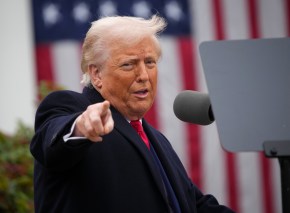It is noticeable that the kind of young woman that a clever public man most likes talking to is intelligent but totally unchallenging. This is pleasant for both. She gets to pick up useful knowledge, while he can hold forth, happy that she doesn’t have the inclination or firepower to disagree, argue or interrupt.
Dr Johnson was a bit like that. He wanted women to be equal ‘but not too equal’. Hannah More, a successful playwright young enough to be his daughter, had too much natural self-belief for him, and he did not admire her dress sense. He was wary and in awe of the confident poet Elizabeth Carter, who knew more Latin and Greek than he did. But he really did enjoy the company of women, and understood their difficulties whether married or single, in either case exposed to the ‘conspiracy’ of the world against them, and to ‘sickness, misery and death’. He proposed in a Rambler essay to turn himself into a ‘neutral being’, somewhere between the sexes.
His mother, who bore him when she was 40, was his first teacher, feeding him with books and stories. Everything suggests he loved her, but he never went back to Lichfield to see her, even when she was dying. His only other domestic relationship was with his wife Tetty, old enough to be his second mother. He was a gangling, stick-thin, jobless, unqualified 25-year-old and she a widow of 46, with three children. They grew apart gradually, and he neglected Tetty as he neglected his mother, but he was shattered when she died.
Contemporaries gossiped and speculated about this marriage. Tetty was not literary. She was blonde with a big bosom; she liked a drink; she was ‘experienced’.







Comments
Join the debate for just £1 a month
Be part of the conversation with other Spectator readers by getting your first three months for £3.
UNLOCK ACCESS Just £1 a monthAlready a subscriber? Log in